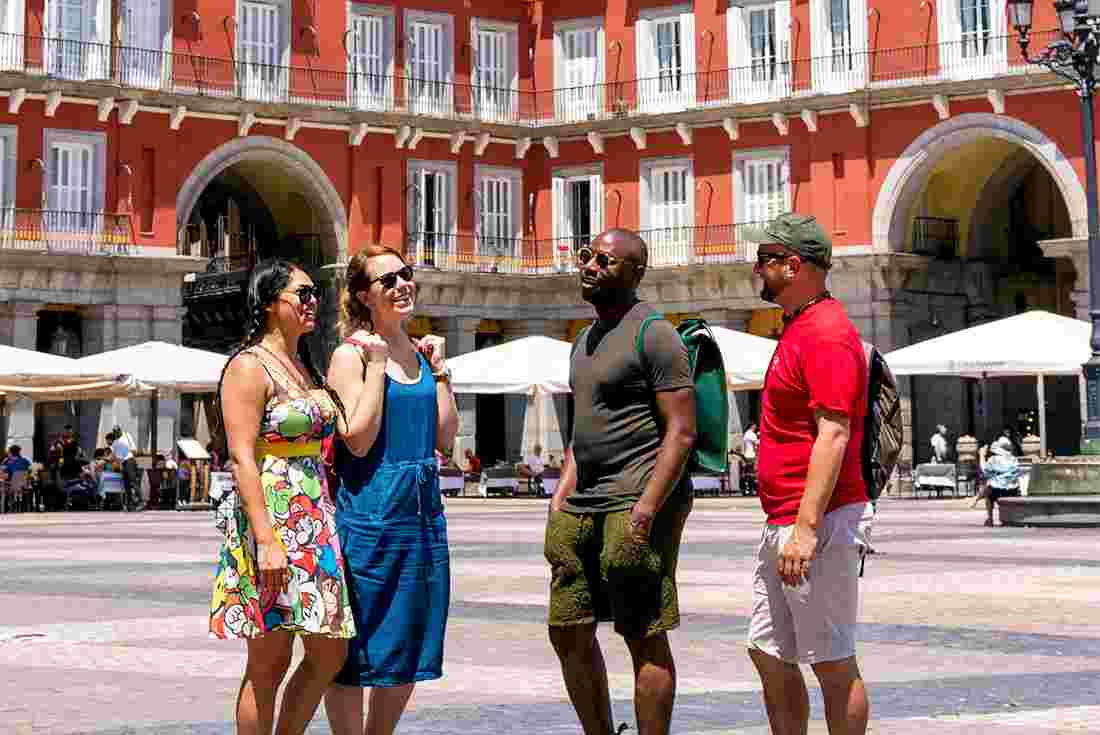Training for working people (Continuous Training):
24
- Memoranda or reports carried out by the training centres providing courses as soon as
they finish.
- The self-assessment that students carry out during the training activity, which is
included in the reports.
- Every year, the State Foundation for Employment Training (Fundación Estatal para la
Formación en el Empleo) carries out an assessment survey on the scope of on-going
training with regard to the working population, the adjustment of the schemes to the
needs of the market, the impact of the training carried out in the maintenance of
employment and in the improvement of the competitiveness of companies, as well as
on the efficiency and efficacy of the economic resources and means employed.
-
Inspection carried out by the Labour Administrations by means of their territorial
delegations.
Despite regulatory efforts, the transfer of powers to smaller territorial bodies and the
delegation of educational functions to collaborating training centres (public and private
institutions) implies more difficulties when carrying out adequate assessment and control on
the whole system. In return, however, this decentralisation has favoured greater efficiency
in the dissemination of these programmes all over the territory.
8. THE STATE OF THE ART IN FORMATIVE ASSESSMENT
The Assessment of students has traditionally been summative in Spain, although the LOGSE
(Ley de Ordenación General del Sistema Educativo, Law on the General Ordering of the
Educational System) in 1990 introduced autonomous learning as a principle of adult training.
The recently passed LOE (Ley Orgánica de Educación, Organic Law on Education) again
encourages autonomous learning and states:
“The organisation and the methodology of adult training will be based on autonomous learning
and will take into account people’s experiences, needs and interests, and may be developed by
means of training involving attendance and also by means of distance learning.
” (Art.64.2)
Despite the fact that the concept of formative assessment does not fully correspond to
autonomous learning, we may find a common theoretical substratum that nourishes both
concepts. We understand formative assessment as “frequent, interactive of students
understanding and progress to identify learning needs and shape teaching” (OECD,
2005). Autonomous learning fosters students’ awareness regarding their own learning process.
25
Autonomous learning is based on the very same principles of student autonomy, which must
make him/herself responsible with regard to his/her own learning process, even if he/she may
count on the tutor’s support.
The Autonomous learning strategy has been progressively incorporated into some Autonomous
Communities since the LOGSE proposed it in 1990. We must point out that, according to their
traditions, the regulations of the different Autonomous Communities in charge of developing the
state framework-law give more or less importance to autonomous learning and formative
assessment; this is the case, for instance, of the Autonomous Communities of Aragon, the
Canary Islands or Catalonia, which have explicitly chosen formative assessment to assess and
reorient the learning process. In their regulations we may find formulations such as the
following:
“Assessment is an element integrated into the training process as well as a means to obtain
information on the educational activity, express opinions and make decisions, and must be
useful to diagnose, orient, regulate, reelaborate and build up knowledge and attitudes
throughout the teaching-learning process.” (Law 16/2002 of June 28, Aragon)
“Assessment will be formative, continuous and integrating. All the same, it will be of a processlike nature; this is why it will take three phases into consideration: initial assessment, formative
and orienting assessment and a final assessment that will take place at the end of a learning
phase (module or course).” (Order 1998/114, of September 7, 1998. The Canary Islands.)
The first step to develop a methodology based on autonomous learning is to carry out a good
VIA (Valoración Inicial del Alumnado, Initial Assessment of Students), which may also be
used to recognise informally acquired knowledge. In the new Law on Education it is
stated that:
“Adults may carry out their learning both by means of training activities, official or non-official,
and by means of their work experience or experience in social activities; this is why there will
be a tendency to establish connections between both ways and measures will be taken to
validate the learning thus acquired.” (Art.63.4)
From here on, the aim is to elaborate a formative strategy and to place the student in an official
level of the educational system, so that it may make up for his/her training deficiencies or that
he/she may continue studying to attain higher educational levels.

